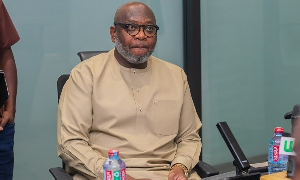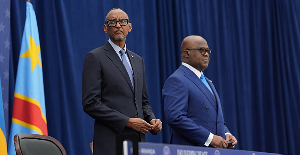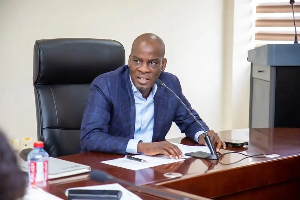Although the role of monetary policy cannot be overemphasized in economic development, the idea of politically suppressing market interest rates and directing cheap credit to bolster economic development should be approached with caution.
In his speech at the 50th anniversary celebration of the Bank of Ghana, President Kuffour made open, his demand on the Bank of Ghana to collaborate with the government and pump more credit into the agricultural sector and to urge the commercial banks to cut market interest rates. While this may seem noble and applauded by some, it’s a clear political interference in monetary policy--- interest rate and money supply management by the Central Bank. This is shocking, if ridiculous for a government that continuously spins about its commitment to prudential policy and the rule of law.
The governor, Dr Acquah’s response, and indeed the right response to the president’s request is the reminder that the Bank’s overriding and enshrined objective is to ensure price and financial stability. But, the real test is if the position of the governor is strong enough, and if the Bank has the mettle to sustain the political pressure.
The president must also be reminded that his so much acclaimed “relative stability of the economy” is as a result of the Bank of Ghana ACT 612, drafted in 2000 and passed in 2002, which reinstituted the independency of the Central Bank-- ability of the Bank to determine money supply and set the interest rates free from political interference.
We must not forget that depressed financial system, high and volatile inflation and collapsed economy have been the consequence of setting market interest rates for banks and the Bank of Ghana financing-- printing more money to finance--development projects in the 60s, 70s and early 80s. Until now, after 25 years of financial liberalization and adjustments, these problems have not been fully corrected.
There is this general believe in Ghana that lending rates are too high and the cost and access to credit is the major cause of low investment and hence slow growth of the economy. Of course, interest levels have some effects on investment, at least in the short term, and we all want to see low market lending rates and availability of long term capital, but at low inflation.
The answer to investment financing in Ghana is not as simple as printing more money and forcing market lending rates down. Besides influencing market interest rates, central the interest rates of the Central Bank (rates on Open Market Operation and the prime rate) primarily convey the Bank’s stands on inflation. In spite of 11 % inflation, still a high level, and strong inflationary pressure, the prime rate has been reduced and kept at 12.5%. The wide gap between the prime rate and market lending rates is the risk premium and depicts the high risk of lending in Ghana. Policies and programs to further reduce inflation and moral hazards--the risk of loan misapplication and default-- are what are needed from the government and not a friendly monetary policy takeover.
Political suppression of market interest rates is wrong morally and economically, would hinder and not improve financial intermediation, as rates on savings and investment funds would also be lowered regardless of inflation. In addition to high moral hazards, excessive cash outside the banking system is another main reason for the weak financial market in Ghana. On the contrary, improving Deposit Money at Banks (DMBs), the main source of funds to banks for credit creation rather requires higher and positive real rates on long term savings and improved banking services.
In my view, promoting bank based payment system and developing a vibrant mortgage market are some of the effective ways we can improve financial intermediation. Apart from increasing DMBs, bank based payment system would also reduce moral hazards hence the risk premium required on loans and also encourage joint ventures. Over 90% of homes in Ghana are fully owned. If the appropriate steps are taken and properties are made more liquid, loans backed by home equity would be more secured and require less interest.
Policy banking, the discriminatory interest rate policy that the president also suggested seems quite tempting, and has indeed worked in some Asian countries such as China. The Bank of Ghana should however know better. Given the high risk of loan misapplication and default in our part of the world, particularly when the government gets involved, the funds would end up not in the intended sectors and would have very little impact, if at all on agriculture. If the government genuinely wants to support agriculture, it should focus on using grants and other incentives- free or subsidized plowing, planting, harvesting, product processing and other farm services for example.















